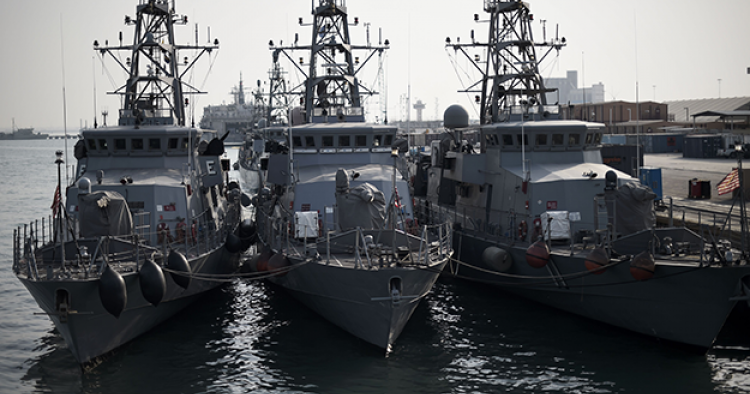Read the full article on The American Interest.
As Bahraini government security services cracked down hard on popular protests against the ruling Al-Khalifa family in February 2011, the U.S. Department of Defense quietly considered alternative basing options for the Fifth Fleet, stationed permanently in Bahrain since 1995.
But those ideas were quickly put on hold with the restoration of order to the tiny Gulf kingdom following the intervention of Saudi and Emirati forces. However, the return to normalcy in Bahrain didn’t prevent a vigorous debate in Washington about the future of U.S. policy toward that key Gulf partner—a debate that continues to this day, although in reduced intensity.
Some, including Elliott Abrams and Toby C. Jones, have been in favor of withdrawing or threatening to withdraw the Fifth Fleet, while others, including Vice Admiral Charles W. Moore have cautioned against such tactics. Both camps agree that the U.S. interest in Bahrain is best served by getting Manama to commit to transitioning to a constitutional monarchy, as its rulers once promised. But they disagree over the U.S. role in this process.
The proponents of relocating and/or disbanding the Fifth Fleet argue that Bahrain is an unsafe home for strategic U.S. assets and thousands of U.S. personnel because its government has failed to address the root causes of the 2011 uprising. It’s only a matter of time before unrest returns to the kingdom, they say, so it’s wise for Washington to leave now in an orderly fashion and with a moral high ground.
MOHAMMED AL-SHAIKH/AFP/Getty Images
The Middle East Institute (MEI) is an independent, non-partisan, non-for-profit, educational organization. It does not engage in advocacy and its scholars’ opinions are their own. MEI welcomes financial donations, but retains sole editorial control over its work and its publications reflect only the authors’ views. For a listing of MEI donors, please click here.













